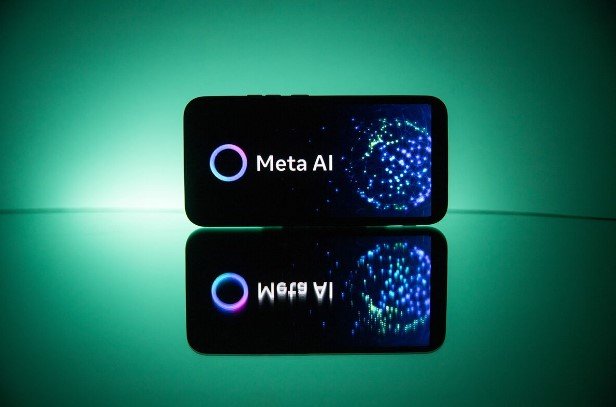Meta Enters the Chatbot Competition With a New Player Marking an Escalation in the AI Arms Race
In a bold move that signals a major escalation in the ongoing artificial intelligence race, Meta (formerly Facebook) has launched a standalone product designed to compete directly with OpenAI’s Chatbot. Alternating the focus of artificial intelligence developed for consumers, ChatGPT. This development marks a pivotal
Meta AI
Meta’s AI Strategy: A Long Time Coming
Meta has had a desire for AI technology for many years. With years of investment in its FAIR (Facebook AI Research) lab and a suite of AI features on its Instagram, WhatsApp, and Facebook, the company has quietly built a formidable social foundation. Combines Meta has not incorporated its focus into AI chat tools such as ChatGPT, Google Gemini, or Anthropic’s Claude.
The recent dedicated Meta AI application derives its sleek design from mobile-first considerations. Meta’s Llama 3 model is powered by a sophisticated chatbot trained on datasets optimised for automation, conversational engagements, and real-life problem solving.
Key Features of Meta AI: What Sets It Apart?
Inevitable comparisons to ChatGPT aside, Meta AI has added some options that suggest a new trajectory in the evolution of chatbots:
1. Multimodal
Meta AI is not solely text-based, unlike many of its predecessors. Image generation, voice input, and web context integration are included, allowing users to ask questions, generate visuals, or request real-time digests of topical discussions.
2. Integrated Search in Real Time
With the collaboration of Microsoft’s Bing and its own tools for indexing, the Meta AI system can retrieve real-time information from the web. This feature creates a live answer capability for events, the current weather, and breaking news, solving one of the inclusion criticisms of ChatGPT—restricted real-time knowledge.
3. Cross Meta Ecosystem Integration Without Barriers
Not limited to a single app, Meta AI can be used as a standalone platform while simultaneously seamlessly integrating into Messenger, Instagram, WhatsApp, and even Facebook Feed. For instance, the AI can be invoked directly in group chats or stories for instant polls/QA/creative prompts.
4. Integrated Tools for Enhanced Productivity
Providing an all-in-one productivity center, Metas AI allows users to complete task-oriented activities such as summarization generation, scheduling, deadline reminder creation, and even document authoring assistance, all through its embedded language model technology.
User Experience: What It’s Like to Use Meta AI
Describing early experiences with this product, many claimed it was smoother and faster when compared with existing AI solutions. The interface is clean, mobile-first, and designed with Gen Z and millennial audiences in mind.
Opening the app prompts users to friendly suggestions, trending topics, and provides a carousel of creative tools. Users can switch between modes: assistive chat, create, search, and aid, customized for different needs.
For example:
Assist enables the retrieval of meal plans, code snippets, and resume edits.
In Search, you gain access to real-time web summaries.
In Chat, you partake in unstructured dialogue.
What sets this apart from the competition is how individualized AI’s response generation fully stems from context. With user consent, context retention across unique sessions helps the AI assistant feel less like a robotic assistant and more like a digitized helpshift companion.

How It Compares to ChatGPT
While Meta AI and ChatGPT are both AI generators, they differ in a few aspects.
Meta AI ChatGPT(OpenAI)
Model Used: Llama 3 GPT-4/GPT-3.5
Real Time Web Access: Yes(via Bing + Meta tools) Limited(requires ChatGPT Plus)
Image Generation: Yes Yes(via DALL·E in Plus Version)
Voice Input/Output: Yes Yes(mobile and Plus version)
App Ecosystem: Integrated across Meta Apps, Standalone with some plugins
Pricing Model: Free with optional premium tier, Free, and ChatGPT Plus ($20/month)
Meta is positioning its AI as more accessible and integrated for everyday use, especially for users already within its wide social media ecosystem.
Data Privacy and Ethical Concerns
The primary discussion around Meta’s AI initiatives has been the issue of data privacy and AI ethics. Given Meta’s controversial track record with user data (e.g., Cambridge Analytica), several experts have expressed concern over the storage, usage, or monetization of prompts, chats, and user activity.
Meta claims that Meta AI observes the framework of GDPR and CCPA, highlighting that users’ conversations are not leveraged for advertisement purposes unless consent is willingly provided. Furthermore, there is a “Private Mode” option that allows users to disengage from data collection for certain interactions.
Even so, the question of whether a company like Meta, which fundamentally bases its business model on advertising, could decouple AI progression from the use of data remains unanswered.
The AI Race Gets Even Hotter
With Meta getting into the mix, the AI space is getting even more populated. Here’s a snapshot of the current key players:
OpenAI: Owners of ChatGPT, reputed for its reasoning prowess and creativity.
Google: Gemini (previously Bard), integrated deeply into Google Search and Android.
Anthropic: Claude, focused on ethical AI and constitutional learning.
Amazon: Alexa AI upgrades with new business-focused models.
Meta: Meta AI, inherently social, visually rich, and integrated into the ecosystem.
Meta is certainly back in the game at the right moment. Not only is OpenAI enjoying the first-mover advantage, but the public demand for AI-assisted work and creative tools continues to surge. With Meta’s enormous user base, the company secures a distribution edge; billions of users on Facebook, Instagram, and WhatsApp can interact with AI with just a few clicks.
The Road Ahead: What’s Next?
Meta has dropped clues relating to many features for the platform that could extend its capabilities.
Custom AI Personas: Users will have the ability to design their very own AI characters, similar to ChatGPT’s “Custom GPTs,” very soon.
Business Tools: Marketing automation, customer support, and business analytics powered by Meta AI are purportedly in development for small businesses.
Wearable Integration: AI will almost certainly be a central component of interactions with the real world through augmented reality as Meta works on AR glasses and other wearables.
Table of Contents
Final Thoughts
Meta’s releasing a standalone app for AI is a monumental development within the consumer AI market. This shifts the organization from a social media titan dabbling in AI to a formidable player in generative AI. Concerns regarding privacy and ethics will remain, but the app’s wealth of features, integration within other services, and ability to function in real-time are major advantages over solutions like ChatGPT.
As the struggle for supremacy of AI technology escalates, one thing is for sure: our relationship with tools and with each other is set to dramatically change.



